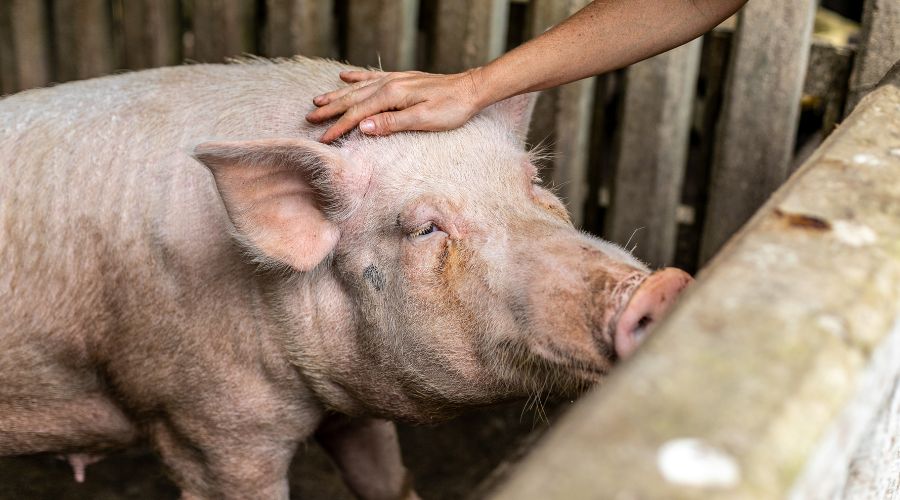Effective waste management is critical for maintaining cleanliness and sustainability on a pig farm. Proper systems not only improve hygiene but also help reduce environmental impact. Below are practical steps to manage waste efficiently and keep your farm in top condition.
1. Separate Solid and Liquid Waste
Separating solid and liquid waste simplifies handling and disposal. This division allows for more efficient processing and reduces contamination risks.
Steps to implement separation:
- Install slatted flooring in pig pens to allow liquids to drain into a collection system.
- Use a two-stage collection system that separates solids from liquids.
- Regularly remove solids and transfer them to a designated storage area for further processing.
A well-designed system minimizes labor and prevents waste buildup in pig housing areas.
2. Compost Solid Waste
Composting is an effective way to recycle pig manure into nutrient-rich fertilizer. This process reduces waste volume and creates a valuable byproduct.
How to start composting:
- Choose a dedicated area for composting, away from water sources to prevent contamination.
- Layer pig manure with carbon-rich materials like straw or sawdust.
- Turn the compost regularly to promote aeration and speed up decomposition.
Monitor temperature and moisture levels to ensure efficient composting. Properly composted manure is safer and more effective as a fertilizer.
3. Utilize Liquid Waste as Fertilizer
Liquid waste can also be recycled as fertilizer through proper treatment. This approach reduces water pollution and provides cost-effective nutrients for crops.
Steps to use liquid waste:
- Treat the liquid in a storage lagoon or tank to break down harmful bacteria.
- Use irrigation systems to apply treated waste to fields.
- Test soil regularly to prevent overapplication, which can harm crops and water sources [TO BE VERIFIED].
Recycling liquid waste enhances farm sustainability while cutting down on disposal costs.
4. Prevent Wastewater Contamination
Unmanaged wastewater can pollute nearby water bodies, leading to environmental and legal issues. Taking proactive steps prevents such problems.
Key practices:
- Line storage lagoons with impermeable materials to avoid seepage.
- Regularly inspect waste collection and storage systems for leaks.
- Implement buffer zones around water sources to minimize runoff.
Investing in proper infrastructure protects your farm and the surrounding environment from contamination.
5. Install Automated Cleaning Systems
Automated cleaning systems save time and improve waste management efficiency. These systems handle waste removal and cleaning tasks with minimal labor.
What to consider:
- Choose equipment designed for pig housing, such as manure scrapers or vacuum systems.
- Schedule automated cleanings to match waste production levels.
- Perform regular maintenance to ensure systems run smoothly.
Automation reduces manual work, allowing you to focus on other important farm tasks.
6. Control Odors Effectively
Odor management is essential for maintaining a clean and pleasant farm environment. Proper practices reduce complaints from neighbors and improve working conditions.
Ways to manage odors:
- Regularly clean pens and waste collection areas to prevent buildup.
- Use odor-reducing products, such as biofilters or microbial treatments.
- Plant vegetation around the farm to act as natural odor barriers.
Effective odor control enhances the farm’s reputation and keeps operations running smoothly.
7. Monitor and Maintain Equipment
Waste management equipment requires regular monitoring to function efficiently. Neglecting maintenance can lead to breakdowns and increased labor costs.
Best practices:
- Inspect waste handling systems weekly for signs of wear or damage.
- Replace damaged parts promptly to prevent larger issues.
- Keep an inventory of spare parts to reduce downtime during repairs.
Well-maintained equipment ensures consistent waste removal and reduces long-term costs.
8. Train Employees on Waste Management
Employees play a key role in maintaining cleanliness and waste systems. Proper training ensures everyone follows the right procedures.
What to include in training:
- Teach proper waste handling techniques to minimize contamination risks.
- Emphasize the importance of regular cleaning and maintenance tasks.
- Encourage reporting of issues, such as leaks or equipment malfunctions.
A trained team is more efficient and helps maintain a clean farm environment.
9. Adopt Biosecurity Measures
Biosecurity practices prevent waste from spreading diseases. Keeping waste areas secure reduces risks to your herd and nearby farms.
Steps to improve biosecurity:
- Limit access to waste storage areas to essential personnel.
- Disinfect tools and equipment used in waste handling.
- Use separate clothing and footwear for waste management tasks.
Strong biosecurity measures protect your pigs and improve farm cleanliness.
10. Evaluate and Improve Regularly
Regular evaluations help identify weaknesses in your waste management system. Continuous improvement ensures your farm stays efficient and clean.
How to evaluate:
- Conduct monthly reviews of waste handling processes.
- Seek feedback from employees on system effectiveness.
- Research and adopt new technologies or methods to enhance efficiency.
Staying proactive ensures your farm’s waste management remains effective and sustainable.


